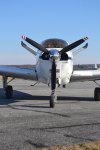IIRC, Vref is based on listing pice, not actual sale price. Years ago those may have been substantially different, but now most older planes are selling at or near the asking price. Maybe Vref is a tad more accurate now?
In any case, these older aircraft are essentially snowflakes, with no two exactly alike. Differences in equipment, maintenance, engine life, cosmetics, etc., are all over the map. This makes price guides of limited utility. Sure, you might establish an average price, but the standard deviation will be so large as to make the average unimportant.
My advice? Establish your purchase budget. Divide that number by 2. Search only for planes at or below that lower number, holding the rest in reserve to correct whatever flaws you discover in your purchase.


